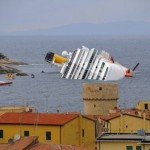
All Tomorrow’s Parties: A Reply to Critics
Though my article “The Actuality of the Revolution” centered on Lenin and 1917, it was really about the present. I think this became clearer as the debate on the article progressed, encompassing questions within the Occupy movement. For this reason, I’ve decided not to quibble over details, but rather to review the history in a way that more clearly shows how this debate, and the role the Bolsheviks played in 1917, speaks to our current historical conjuncture. Since the pressing question, the one that tied all these articles together, was actually the question of the party, I will try to clarify and elaborate my analysis of the function of the party form, responding to the three critiques of my original argument.
 Viewpoint Magazine
Viewpoint Magazine

